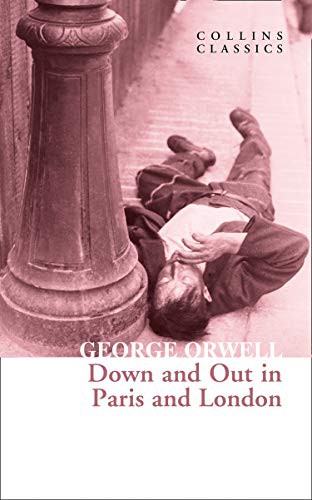Immediately engaging with a lively prose style
5 steloj
In researching the background to Down And Out In Paris And London I found out that the book was initially published as a work of fiction before Orwell admitted that it was practically all autobiographical, albeit with his London homelessness occurring before his Parisian stint in real life. As with the other books of his that I have read, this one is immediately engaging with such a lively prose style that I found it to be a real page-turner. Orwell is simultaneously incredibly insightful and observant, but rarely harangues his readers. Instead he shows us the life he led for several years, described in often sickening clarity. I'm not a particular fan of posh hotels or restaurant dining anyway, but after spending a few hours with Orwell at his dead-end job in an overheated cellar kitchen, Iit will be a long time before I risk eating food I haven't personally …
In researching the background to Down And Out In Paris And London I found out that the book was initially published as a work of fiction before Orwell admitted that it was practically all autobiographical, albeit with his London homelessness occurring before his Parisian stint in real life. As with the other books of his that I have read, this one is immediately engaging with such a lively prose style that I found it to be a real page-turner. Orwell is simultaneously incredibly insightful and observant, but rarely harangues his readers. Instead he shows us the life he led for several years, described in often sickening clarity. I'm not a particular fan of posh hotels or restaurant dining anyway, but after spending a few hours with Orwell at his dead-end job in an overheated cellar kitchen, Iit will be a long time before I risk eating food I haven't personally seen being cooked for me!
What particularly struck me about Down And Out In Paris And London was the contrast in social attitudes in the two cities towards those down on their luck. In Paris, cheap accommodation is available - filthy, but affordable - and casual jobs can be had without too much fuss. Also Parisians have no issue with people sitting on the kerb if they are tired, or lying in a park when they have nowhere else to go. This isn't to say that Orwell and his companions had life easy in Paris - far from it. However I felt a far more positive attitude from him at this time. He mixes with many different people, from Russian royalty down men even worse off than himself, but there is usually a sense of camaraderie and hope.
The situation Orwell finds himself reduced to once in England struck a very disconcerting note. Again it is the social attitudes to homelessness which are most shocking, especially as I could see absolutely no improvement over the past eighty years from the callousness prevalent in the 1930s. The English not only choose to blame destitute people for their own misfortune, but also had developed a system that limited each man to only stay one night in a recognised hostel - a 'spike' which was basically an extension of the workhouse. The next night he must be fifteen or twenty miles away at another spike, the journey undertaken on foot with, if he is lucky, tea-and-two-slices (of bread and margarine to sustain him. How cruel and also how ridiculous! At this time, there are thousands of men effectively shut out of society because of this daily forced march. They can never stay anywhere long enough to put down roots and begin to integrate and contribute.
The total lack of empathy and understanding shown by the English towards destitution hadn't changed since Dickens' time and is still essentially Tory policy now. There are crystal clear parallels between the London segment of Down And Out In Paris And London and Terry Tyler's brilliant dystopian novel, Hope, both of which shine powerful spotlights onto the dehumanising belief that homelessness is only the plight of those that 'deserve' it. That, somehow, someone marching twenty miles a day, six days a week, on next to no food is just 'lazy'. That the best way to deal with homelessness is not to find ways in which everyone can be supported and hang on, but instead to kick the lowest rungs away and pat ourselves on the back that We could never end up like That. Though, of course, if it can happen to an Etonian boy like Orwell ...

